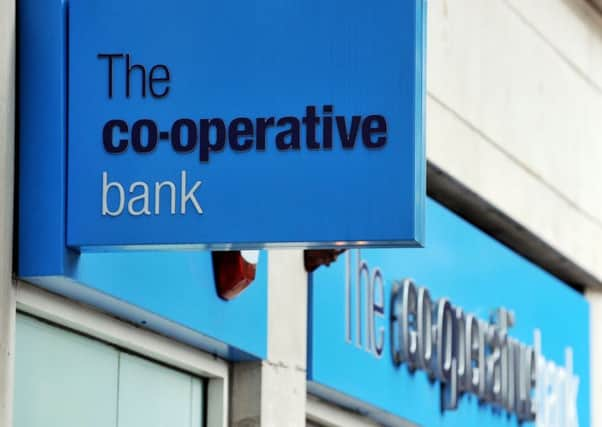Comment: Co-op Bank on faltering route to recovery


Boss Niall Booker, who likes to call a spade a spade, says it will be at least another two years before Co-op Bank is profitable again.
He obviously doesn’t want to create any hostages to fortune, which is a policy adopted by most of the main damaged banking players in the wake of the financial crisis. Meanwhile, the clean-up of the Co-op Bank balance sheet and the streamlining of operations goes on as it seeks to restore the reputation that was dragged through the mud just as it was hoping to win more customers in the wake of the crash that damaged the reputation of the big banking players.
Advertisement
Hide AdAdvertisement
Hide AdPerhaps the best news yesterday was that the rate of customers fleeing the nest has slowed significantly. Co-op Bank lost 2,250 current accounts in the first six months of this year, a major improvement on the 62,646 that went west in the same period of 2014.
Branch closures and non-core asset sales have made it a tighter organisation with more realistic aspirations, although with a halftime loss of £204m, up from a loss of £77m last time, there is still obviously a long way to go.
Booker has made progress in injecting some realism and drive into what looked a moribund organisation at the nadir, which included a performance before the Treasury select committee of a drug-taking Methodist vicar chairman who did not appear, in banking terms, to know his assets from his elbow.
But will the turnaround be fast enough for the hedge funds and bondholders who now speak for 80 per cent of the organisation? I think so, for now.
However, one wonders whether they may weigh giving Booker and co another couple of years to do the heavy lifting work in righting the Co-op Bank ship, but would then see the job being best completed via a merger with another challenger bank without any of the same onerous reputational baggage? Not unthinkable.
And such a timeframe, with an exit time from ownership of about four or five years, is often judged about right for such unsentimental investors.
Price drop is long-term
THE oil price slump and its ramifications for energy explorers and back-up services companies have created a pretty standard industry-wide response. Sliding profits or losses triggered by those low oil prices have focused management minds on reducing investment, cutting jobs, selling non-core developments, writing down asset values, and trying to get more flexibility with companies’ banking covenants.
In one way or another Wood Group, EnQuest and Premier Oil have taken one or more of these routes this week. There will be others.
Advertisement
Hide AdAdvertisement
Hide AdWe have moved beyond a scenario that suggested the oil price slump was a short-term pain, but without mid-term consequences.
That now looks too optimistic. Energy groups are beginning to see the low oil price as not forever, but not a short-term blip. They are reacting accordingly.